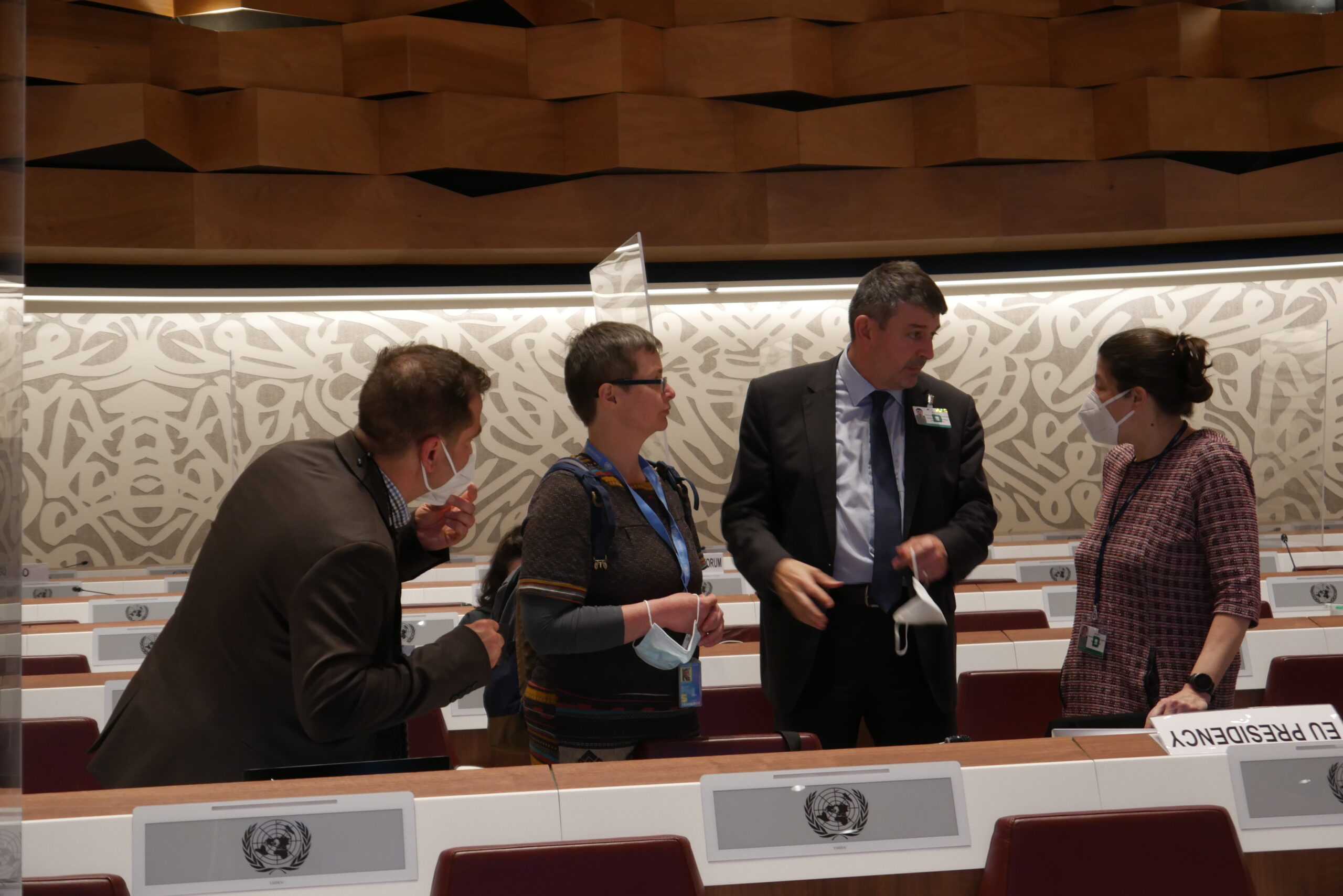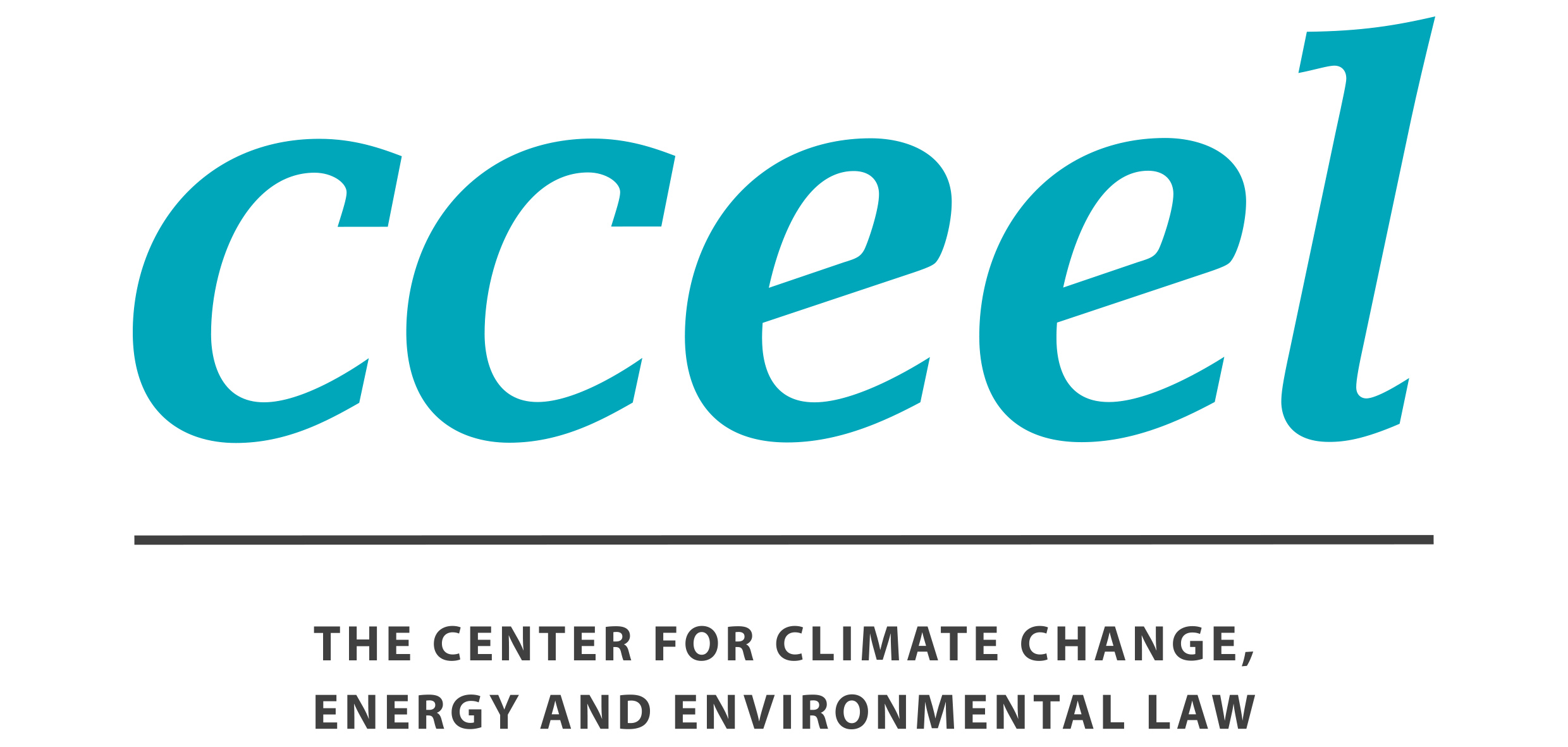Environmental democracy under pressure: The EU and the Aarhus Convention ahead OF MOP-8
by Nicola Sharman, Doctoral Researcher

As Europe confronts political divides and challenges over environmental policy, the Aarhus Convention’s promise of environmental democracy faces one of its most significant tests yet. Adopted in 1998, the Aarhus Convention guarantees the three procedural rights of access to information, public participation and access to justice in relation to environmental matters. Over the past 25 years, it has become a legal cornerstone of environmental democracy within Europe and beyond.
This November, parties to the Convention will gather for the eighth Meeting of the Parties (MOP-8). Given the European Union and its 27 Member States make up the majority of the Convention’s 48 parties, the delegation wields considerable influence over the meeting’s outcomes. In this blog, I reflect on what is at stake for the upcoming meeting and on the EU’s role, amidst mounting worries of environmental and democratic backsliding across Europe, the opaque process of negotiating the EU’s delegation mandate, and lingering political tensions from the last two MOPs.
Environmental and democratic backsliding across Europe
The Aarhus Convention is arguably more critical than ever at a time of deepening division over environmental policy across Europe. Polling shows that environmental issues remain high on people’s political concerns. But socio-economic pessimism and fears of unjust transition are also fuelling scepticism, populist forces and industry pressure that resist ambitious policy and regulation.
Many observers and specialists are sounding the alarm that environmental ambition shows signs of retreating. The Commission’s 2025 omnibus package stands out as the central example, marketed as an urgently needed simplification of corporate emissions reporting and due diligence regulations agreed under the European Green Deal. But the proposals are criticised as weakening corporate accountability and being pushed through opaque processes that offered insufficient opportunity for public scrutiny. The case is currently under investigation by the European Ombudswoman. Other indications of backsliding include delayed regulation on deforestation-free supply chains and postponed CO2 emissions targets for car manufacturers.
Meanwhile, the Aarhus Convention’s Special Rapporteur on Environmental Defenders has reported trends across the European bloc that indicate a shrinking civic space and growing legal hostility towards environmental defenders. Public trust in democratic institutions to effectively manage environmental crisis is declining, reflecting a broader sense of political disaffection. The European Commission itself has also long grappled with its democratic credibility.
In this contested and fragile landscape, the Aarhus Convention provides a crucial legal safeguard and accountability mechanism to ensure that procedural environmental rights and values of environmental democracy are not eroded.
Speaking with one voice: how the EU delegation negotiates
The EU occupies a distinctive but potentially delicate dual role within the Aarhus framework. In one aspect, the EU is a party bound by the Convention in its own right and applies the Convention’s standards internally to its own institutions, bodies, offices and agencies under the Aarhus Regulation. In the other aspect of its role, the EU enforces the Convention’s standards among Member States, thus creating an extra layer of accountability for EU Members outside of the Aarhus system. EU Directives (e.g. 2003/4/EC; 2003/35/EC) and other legislative instruments require Member States to transpose Aarhus standards into national legislation, subject to monitoring by the Commission and enforceable through the CJEU (See Slovak Brown Bear 2011).
The EU’s also has a unique influence through its role as a negotiation bloc at the Aarhus MOPs, which convene every 3-4 years to collectively adopt decisions on implementation, compliance and future work programs. The EU delegation, comprised of the Commission, presidency of the Council, and Member States, agree the negotiation mandate in advance. This usually starts with a Commission proposal, which is then scrutinised and given final sign-off by Member States via the Council of Ministers. Everything is carefully coordinated, including who will speak on behalf of the MOP meetings (either the Council presidency or DG Environment on behalf of the Commission).
On the one hand, this unified approach ensures a cohesive external position, arguably adds efficiency to the Aarhus process, and amplifies the EU delegation’s normative influence. On the other hand, it makes discerning individual Member State positions difficult. This may stifle the voices of more ambitious Member States and those that would challenge the Commission or other EU states’ own implementation records within the Aarhus process. It can also allow parties with low ambition to evade exposure and critique. The most recent two MOPs, discussed below, starkly demonstrated these issues.
Importantly, this approach also shifts a great deal of the influence over MOP outcomes to the EU mandate negotiation procedure. In contrast with the spirit of the Convention, this process lacks transparency and has no integrated formal role for civil society. NGOs instead must rely on careful strategies to gain access to policymakers and build influence over the mandate negotiation process.
The Commission’s double standards and EU politics of compliance
Tensions between the EU’s self-image as a champion of environmental democracy and its own compliance record and treaty politics have been in sharp display at the last two MOPs, significantly undermining its relationship with the Convention and the authority of the Aarhus Convention Compliance Committee (ACCC).
In 2017, a long-running access to justice dispute came to a head when the ACCC found the EU in non-compliance in respect of the CJEU appeal procedures laid out in its 2006 Aarhus Regulation (Case C32). Appeals were allowed only on CJEU decisions of individual scope, but not decisions of general scope (according to the Plaumann doctrine). This was found to be in contravention of Article 9(3), which requires giving the public access to review procedures to challenge contraventions of law relating to the environment. The finding followed almost 10 years of challenge by NGOs and accusations of double standards given the Commission’s role in enforcing Article 9(3) upon Member States.
But rather than accepting and endorsing the findings at MOP-6, the EU defiantly refused on the basis that the EU legal order had a special status compared to national states. It was argued that endorsing the decision would compromise the separation of powers between the EU executive and judiciary. This legalistic defence was widely condemned by NGOs and other Aarhus parties as an attempt to place the EU above the rules it helped create. Behind the scenes, several Member States reportedly opposed the Commission’s stance, but the need for a unified negotiation mandate left little room for open dissent.
The decision was ultimately postponed: a resultthat disrupted longstanding practice to adopt all MOP decisions by consensus and which undermined the authority of the ACCC. Although the EU later amended its Aarhus Regulation in 2021 to bring itself into compliance, the episode set a troubling precedent. At MOP-7, a similar story played out. The new issue related to a further ACCC non-compliance finding regarding the inability of plaintiffs to challenge Commission decisions on state aid (Case C128). This time, the EU bloc cited procedural constraints and time pressures in its mandate process, rather than using substantive arguments, to justify once more declining to endorse the findings. But this covered for political opposition behind the scenes from the Council in how the non-compliance should be remedied and thus the same underlying problem was revealed: the internal mandate process can be used as a political shield that permits both the Commission and Member States to evade scrutiny in the public forum of the Aarhus MOPs.
MOP-8: an opportunity to reaffirm commitment
In May 2025, following a process of consultations, the Commission revised its state aid rules. Thus there is no reason that the EU delegation cannot confidently endorse the ACCC findings at MOP-8. Yet, the significance of the upcoming meeting extends well beyond this single case. It takes place during a moment when principles and standards of environmental democracy are under renewed pressure across the region and the value of the Aarhus Convention is being tested.
MOP-8 should remind all Aarhus parties that their commitments are not merely political aspirations, but legally binding rights-based obligations. Given its considerable normative influence, the European Commission in particular bears a particular responsibility to model best practice. Its credibility will depend not only on how it responds to long-standing compliance disputes, but also on whether it can demonstrate progress in implementing the Convention’s standards.
There are encouraging developments to build upon. The EU has made headway in addressing the three other outstanding non-compliance findings against it (Cases C54, C96, and C121). In response to the Committee’s recommendations in Case C54, for instance, the Commission has strengthened legislation and guidance on how Member States include the public in the preparation of their National Energy and Climate Plans. However, the latest round of submissions shows that implementation by Member States remains mixed and access to information requirements remain unmet.
For the EU delegation, the meeting offers an essential opportunity to further restore institutional trust and match rhetorical support for environmental democracy with genuine engagement and constructive follow-through. Ambition should be shown across the whole agenda. As the first MOP since the creation of a rapid response mechanism for environmental defenders, the EU should offer strong support for its continued operation and take a firm stance on contributing to the Convention’s chronic underfunding.
Of course, the EU’s positions at MOP-8 will already be determined in the course of its mandate negotiation process before they even reach the Aarhus negotiating table, which is now ongoing. While lack of transparency may be justified to some degree by confidentiality concerns, the delegation should strive to meaningfully engage with civil society organisations as much as possible during this process in the spirit of the Convention.
